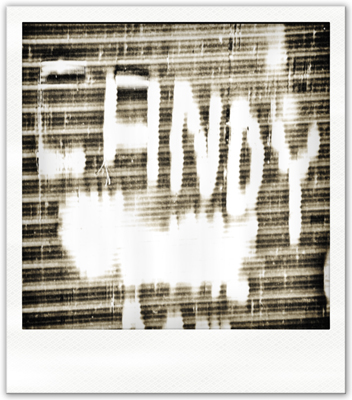
I.
In her kitchen, two blind Siamese cats jump from one formica counter to another. Every item in the house is kept in exactly the same place, for the cats. The Other Nana turns a key, peels a ham out of a tin, a pink body. “I like ham for Christmas,” she says. I’m used to cooked food, an oven. The ham looks like something you’d eat during war or famine—meat that won’t spoil. The Other Nana’s eyes are round and blue, but in a cartoon, you’d see straight silver arrows shoot out.
II.
On a military base in Spain, Mom buys a bottle of Dry Sack for The Other Nana. The bottle is smooth, the wine-dark of drawn blood. “She can’t drink. Why give her that?” Dad asks. Mom says, “We always do. She likes it.” Dad looks down at the linoleum, his head shaking in such tight shakes, you could miss it, you could think he was standing still. “What will we give her if we don’t give her this?” A porcelain sailor boy, Lladró figurine. A boy with downcast eyes and white pants who carries a ship at his hip.
III.
When I’m in college in a nearby town, The Other Nana opens the door to her bedroom. All pink. “Here’s a light,” she says, switching on a table lamp. The edge of the shade, bedding, curtains—everything is lacy. She gives me the room, her bed. I don’t know where she sleeps.
IV.
After my son, Tommy, dies, The Other Nana says, “Why doesn’t anyone in this house talk about him? I’d go crazy if I didn’t talk about him.” She has powder on her face, like sugar on her skin.
V.
The Other Nana sends me two black Siamese cat sculptures with green eyes. Something happens to one of them. It’s gone.
VI.
In The Limited, I have twenty dollars and buy The Other Nana a silver necklace with a pendant. I saw her wear it once, bright on her chest, on her sweater. Her sisters circling her in the house. I could tell that she knew that it meant she was loved. Years and years later, when she dies, her jewelry is found in the cardboard Limited box with the black top. Except for the necklace.
VII.
After my grandmother on the Cape dies, “Nana,” I visit The Other Nana in a massive, low-income building in Brockton, in her Lego-like apartment. I want her to act like a grandmother. I want her to say, “I’m sorry your Nana died,” and touch my hair. She brings two dresses out of her closet, says, “I bought them from a catalog.” She’s pleased with herself. The dresses look like triangles. “Are you mad at me?” she asks.
VIII.
“Tommy liked carnations,” The Other Nana says. When I cry on a ride from the cemetery, a visit, I’m humiliated that my family can see me unprotected. The Other Nana takes my hand across the back seat, her fingers cold and bony, ringed even without jewelry. She holds my hand hard, presses it into the seat, sure of herself, and relieved that she’s what I need. That she knows what to do.
IX.
I go alone to visit The Other Nana in her assisted living home, bring a photo found in an attic in Ireland: The Other Nana and my Dad, as a baby. She says, “I don’t know what to say without your parents here…” She looks scared of me. In another photo, she’s just married one man, and is pregnant with another man’s son, my dad. Nobody knows this but her, not the men, not her sister Anne who knows everything. She wears a beret in the photo, looks slightly drunk, delicate, her new husband behind her looking at the camera, as if he can’t believe his luck. She leans one way, he another, so that the house behind them seems to tip. “It’s you,” I say.
X.
I leave a mum on her stone in Rockland, cream-colored like a wedding dress, and pink flowers above her grave grass, like a little trellis, tell her, “I’m not mad.” I tell her she was perfect, and I hope I’m not lying. I mean, I’m sorry that I punished her for resembling me. She’s been dead a year — Nana — grass grown over, but her name’s not carved into the stone. The only way to know she’s here is to remember her.
Kelle Groom’s essays have appeared in AGNI and Brevity, and her poems have been published in DoubleTake, Gettysburg Review, The New Yorker, Ploughshares, and Poetry. Her poetry collections are Five Kingdoms (Anhinga Press, 2009), Luckily, a Florida Book Award winner (Anhinga Press, 2006), and Underwater City (University Press of Florida, 2004). She is grants and communications manager for Atlantic Center for the Arts, an artists-in-residence facility in New Smyrna Beach, Florida.
photo by Leslie Miller

1 comment
Mark Landry says:
Jan 8, 2024
This memoir seems lyrical.